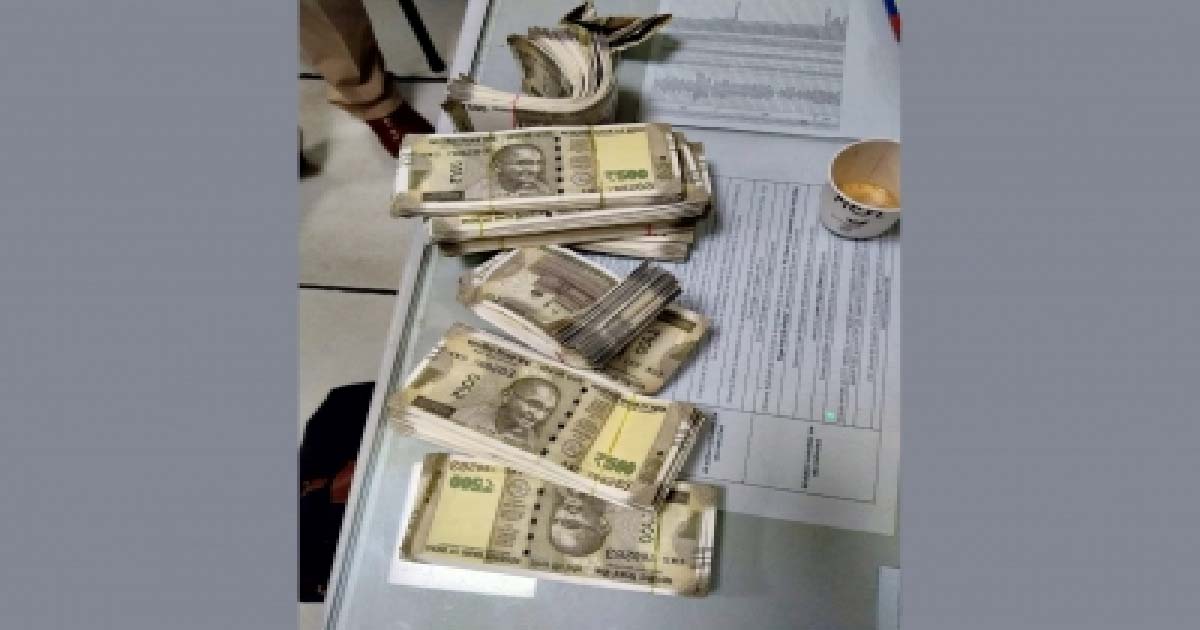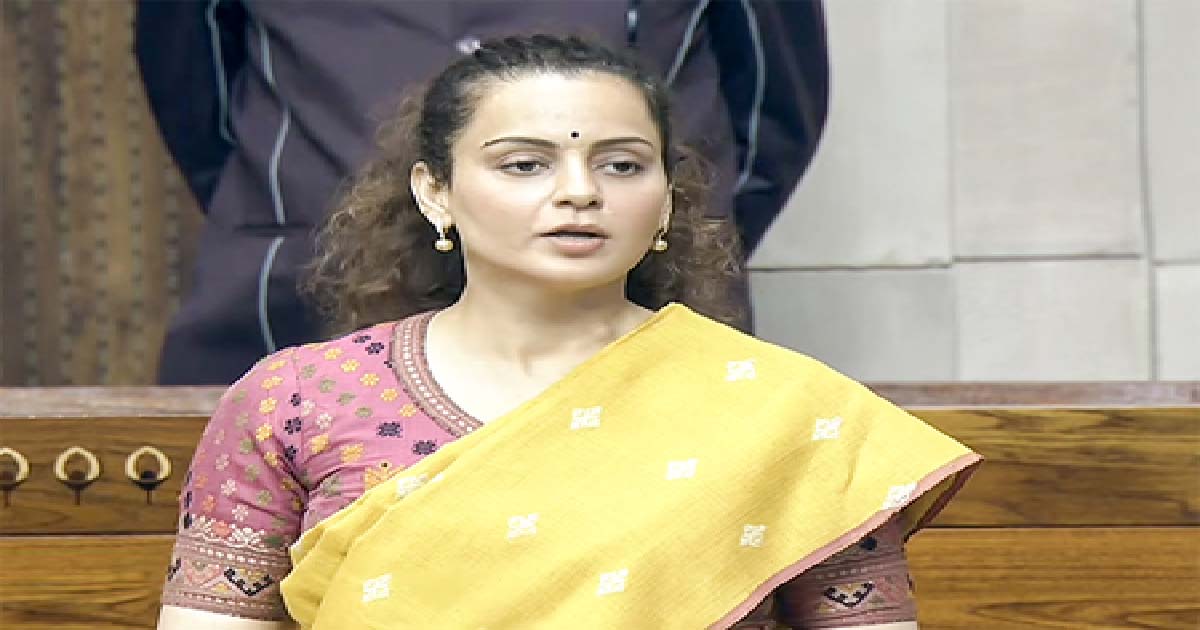International News
UNEP signs MoU with Mah govt for implementing climate change actions

The UN Environment Programme (UNEP) has signed a Memorandum of Understanding (MoU) with the Maharashtra government to support its ‘Majhi Vasundhara’ campaign, an initiative with regard to the energy and environmental dimensions of sustainable development.
“The beginning of a new partnership between UN Environment Programme and the Government of Maharashtra will support the state in the implementation of climate change mitigation and adaptation measures,” said a statement from UN office on Saturday.
The MoU was signed on Friday.
‘Majhi Vasundhara’ (literally, My Earth) is an initiative of the Government of Maharashtra’s Environment and Climate Change Department to empower citizens with knowledge on the impacts of climate change and environmental issues and to encourage them to make a conscious effort towards improvement of the environment.
Speaking for the government of Maharashtra, Cabinet Minister of Tourism, Environment and Protocol, Aditya Thackeray said: “We should start to consider all possible avenues to get to Net Zero at the earliest. Over the next few months, Maharashtra will evaluate the investment prospects that will be required to steer Maharashtra’s economy towards net zero. We have an imperative to act now.”
UNEP will support the state in educating and mobilising youth on plastic pollution and marine litter through UNEP’s Tide Turner Challenge across all educational institutes in the state of Maharashtra. Under the partnership, UNEP will support the Maharashtra government on various clean energy initiatives and in its efforts to develop a strategy for carbon neutral development in line with the Government of India’s vision.
“The time is right for Maharashtra to lead the drive in a clean energy transition with its recent renewable energy policy being an important step.”
This can pave the way for industry to make this shift, alongside the financing opportunities that are coming in tandem. Clean energy, and sustainability as a whole, is growing as an opportunity for industry. “There is a global trend in which frontrunners are occupying a niche in different markets, not just in the energy sector, but in sectors such as transport, agriculture, electronics, chemicals, buildings and construction, textiles, to those taking advantage of what a circular plastics economy can offer. Maharashtra is well placed to take advantage of this transition,” said Director, Economy Division, UNEP, Sheila Aggarwal-Khan.
“In this Decade of Action to achieve the Sustainable Development Goals, we are pleased to see this collaboration between UN Environment Programme as a member of the UN Country Team in India and the Government of Maharashtra, which will help inculcate climate consciousness and green values across communities and especially the youth. This is an important step to enhance sustainable interaction between people and their environment, aligning respect for the Earth with prosperity,” Shombi Sharp, UN Resident Coordinator in India, said.
The UNEP is the leading global voice on the environment. It provides leadership and encourages partnership in caring for the environment by inspiring, informing and enabling nations and peoples to improve their quality of life without compromising that of future generations.
Crime
As drug net tightens, ISI and D-Syndicate push massive fake currency surge

New Delhi, Dec 10: With the Indian agencies cracking down heavily on the narcotics trade, Intelligence Bureau officials have warned about an uptick in the smuggling of fake currency notes. In the past two weeks, several operations have been carried out in various parts of the country in which fake currency rackets have been busted.
The fake currency mafia is controlled by the Dawood Ibrahim syndicate, which is based in Pakistan. While the syndicate is trying to find newer routes and partners to further the narcotics trade, it is also stepping up operations relating to fake Indian currency. The ISI needs funds to resurrect its terror groups, which were largely beaten down during Operation Sindoor.
The fake currency racket had taken a slight backseat for some years, but now there are full-fledged plans to resume operations on a very large scale. Malda in West Bengal remains the main hub for this racket in India. Now with an unfriendly regime in place in Bangladesh, the ISI sees an opportunity to scale up operations.
All the fake currency that is being printed in Pakistan is first routed into Bangladesh. The ISI finds no problem in routing fake notes into Bangladesh, as Islamabad and Dhaka have close ties today. The sea route has been opened up, and the visa process is much simpler for Pakistanis, and this is being taken advantage of by the ISI.
From Bangladesh, the operatives push the fake currency into Malda, following which it is circulated across the country. Officials report that apart from West Bengal, mini modules have been set up in various parts of the country. The notes are transported either from Malda or Murshidabad in West Bengal to the rest of the country.
An official said there has been an increase in such cases, as the ISI and D-Syndicate are pushing it massively. There is a desperate need for funds as the ISI is not only trying to revive terror groups in Pakistan, but is also creating another front in Bangladesh. It wants to engage India on both fronts, and hence the simultaneous push is being made, the official explained.
These gangs operating the racket in India have been coming up with various ways to push fake notes into the market. In Gujarat, a gang that was running a money-doubling scam was busted. It was found that victims were lured into the scheme, and they were given fake Indian currency. This gang was operating mainly in Gujarat and Maharashtra, the probe has revealed.
While the Bangladesh-West Bengal route is the primary one for this racket, there is also a fresh push to smuggle these notes through the UAE into Kerala. Over the years, Kasargod in Kerala has become a major hub for smuggling fake currency notes.
M.B. Moosa, Abdul Rahman, K.M. Hamza, Kallatra Abdul Ha Khader Haji, Irabhim Soopi, K.S. Abdullah, and Kadavath Atta are the ones who have been running this racket. The notes from Pakistan would reach these persons through the UAE route.
Officials say that the Kerala route is one of the hardest to control. There is a huge rush at the airports owing to the number of people visiting the Gulf nations. The ISI has taken advantage of the stress on the security mechanism at these airports in Kerala. Most of the time, these persons get away because the customs formations are understaffed. This makes checking everyone difficult.
Further, the detection has also become very difficult owing to the quality of the notes that are being printed. An Intelligence Bureau official said that the notes are printed in government printing presses in Lahore, Karachi, Quetta, Multan, and Peshawar. These are the same places where the official Pakistani Rupee is also printed. Hence, the quality of the Indian notes being printed in Pakistan is of very superior quality, and this is making detection a challenge, the officer explained.
The gravity of the problem in India, courtesy this fresh push by Dawood and the ISI, can be seen in a report published by the US State Department. “India faces an increasing inflow of high-quality counterfeit currency, which is produced primarily in Pakistan but smuggled to India through multiple international routes. Criminal networks exchange counterfeit currency for genuine notes, which not only facilitates money laundering but also represents a threat to the Indian economy,” the report says.
Business
India-Russia friendship steady like pole star amid global uncertainty: PM Modi

New Delhi, Dec 5: Hailing India-Russia ties, Prime Minister Narendra Modi on Friday said that the friendship between the two countries has remained like a pole star amidst the ups and downs faced by the world in the past 80 years.
While making a joint press statement with Russian President Vladimir Putin following their talks at the Hyderabad House in New Delhi on Friday, PM Modi said that the ties between two nations have stood the test of time and thanked Putin for his friendship and unwavering commitment to India while recalling the efforts made by the Russian leadership to elevate bilateral ties.
“Today, I am delighted to welcome President Putin to the 23rd India-Russia Summit today. His visit comes at a time when our bilateral relations are experiencing several historic milestones. 25 years back, President Putin laid the foundation for our strategic partnership. 15 years ago, in 2010, our partnership was granted the status of a Special Privileged Strategic Partnership. For the past two and a half decades, he (President Putin) has nurtured this relationship with his leadership and vision.
“His (President Putin) leadership, under all circumstances, has elevated our ties to new heights. I express my heartfelt gratitude to President Putin, my friend, for this deep friendship and unwavering commitment to India. The world has seen many ups and downs over the past eight decades. Humanity has faced many challenges and crises and amidst all this, the India-Russia friendship has remained like a pole star. This relationship, founded on mutual respect and deep trust, has always stood the test of time,” he added.
Recalling recent heinous terror attacks in both countries, PM Modi said that India and Russia have stood together in the fight against terrorism.
“Today we also discussed regional and global issues. India and Russia have long cooperated shoulder to shoulder in the fight against terrorism. Whether it’s the terrorist attack in Pahalgam or the cowardly attack on Crocus City Hall — the root of all these incidents is the same. India firmly believes that terrorism is a direct attack on the values of humanity and global unity against it (terrorism) is our greatest strength.”
PM Modi announced that India and Russia will cooperate to train Indian seafarers in polar waters. “We will now cooperate to train Indian seafarers in polar waters. This will not only strengthen our cooperation in the Arctic, but will also create new employment opportunities for India’s youth.”
Reiterating India’s stance on Ukraine conflict, he said, “India has advocated for peace in Ukraine from the very beginning. We welcome all efforts to find a peaceful and lasting solution to this issue. India has always been ready to contribute and will continue to do so.”
PM Modi also termed energy security as a strong and important pillar of India-Russia partnership. He stated that cooperation between India and Russia in civil nuclear energy has been crucial in realising shared clean energy priorities.
“Energy security has been a strong and important pillar of the India-Russia partnership. Our decades-old cooperation in civil nuclear energy has been crucial in realising our shared clean energy priorities. We will continue this win-win cooperation. Our cooperation in critical minerals is crucial to ensuring secure and diversified supply chains across the world,” stated PM Modi.
Earlier, taking the India-Russia Special and Privileged Partnership ahead, PM Modi warmly welcomed President Putin at the Hyderabad House to participate in the 23rd India-Russia Annual Summit.
With both countries sharing a longstanding and time-tested bond, the two leaders are holding comprehensive and detailed discussions aimed at further strengthening the bilateral relations.
International News
‘Govt follows protocol’: BJP respond after Rahul Gandhi remarks on Oppn-Putin meeting

New Delhi, Dec 4: After Congress MP Rahul Gandhi alleged that the Centre has been advising foreign delegations against meeting or interacting with the Leader of the Opposition (LoP) – a practice he said was followed during previous UPA and NDA regimes, ruling party leaders on Thursday rejected the claim, asserting that the “government follows due protocol” in all matters.
The startling charge by Rahul Gandhi, while speaking to reporters outside Parliament, comes hours ahead of Russian President Vladimir Putin’s two-day visit to India. His remarks are set to raise eyebrows in the political corridors and also set the stage for heated sparring between the BJP and Congress.
Rahul Gandhi said, “Meetings with the LOP take place with delegations coming from outside. It has been a long-held tradition and has always been done this way,” he said, while citing instances during Manmohan Singh and Atal Bihari Vajpayee governments.”
Speaking to Media, BJP MP Kangana Ranaut said, “These decisions are made by the government. Atal ji was a national asset, and the entire country was proud of him. He was a great patriot. I don’t know why Rahul Gandhi is not being allowed, but in my opinion, his commitment to the nation is questionable. His role in creating unrest and trying to divide the country raises doubts about his intentions. And if Rahul Gandhi is comparing himself to Atal ji, then I would suggest he join the BJP — only then could he become like him.”
BJP MP Bhim Singh said, “Why would the government stop him? He only creates chaos and does not speak where he is supposed to speak.”
Echoing a similar stance, BJP MP Brij Lal added, “The government follows protocol, and work will be carried out accordingly. Rahul Gandhi is only making this political.”
JD(U) leader K. C. Tyagi clarified, “The government does not decide such protocols. Visiting heads of state themselves decide whom they wish to meet.”
Union Minister Ramdas Athawale added, “Foreign leaders visit on the invitation of the ruling party or government. If President Putin wishes, Rahul Gandhi, as LoP, can meet him. The government has no role in that.”
-

 Crime3 years ago
Crime3 years agoClass 10 student jumps to death in Jaipur
-

 Maharashtra1 year ago
Maharashtra1 year agoMumbai Local Train Update: Central Railway’s New Timetable Comes Into Effect; Check Full List Of Revised Timings & Stations
-

 Maharashtra1 year ago
Maharashtra1 year agoMumbai To Go Toll-Free Tonight! Maharashtra Govt Announces Complete Toll Waiver For Light Motor Vehicles At All 5 Entry Points Of City
-

 Maharashtra1 year ago
Maharashtra1 year agoFalse photo of Imtiaz Jaleel’s rally, exposing the fooling conspiracy
-

 National News1 year ago
National News1 year agoMinistry of Railways rolls out Special Drive 4.0 with focus on digitisation, cleanliness, inclusiveness and grievance redressal
-

 Maharashtra1 year ago
Maharashtra1 year agoMaharashtra Elections 2024: Mumbai Metro & BEST Services Extended Till Midnight On Voting Day
-

 National News1 year ago
National News1 year agoJ&K: 4 Jawans Killed, 28 Injured After Bus Carrying BSF Personnel For Poll Duty Falls Into Gorge In Budgam; Terrifying Visuals Surface
-

 Crime1 year ago
Crime1 year agoBaba Siddique Murder: Mumbai Police Unable To Get Lawrence Bishnoi Custody Due To Home Ministry Order, Says Report












